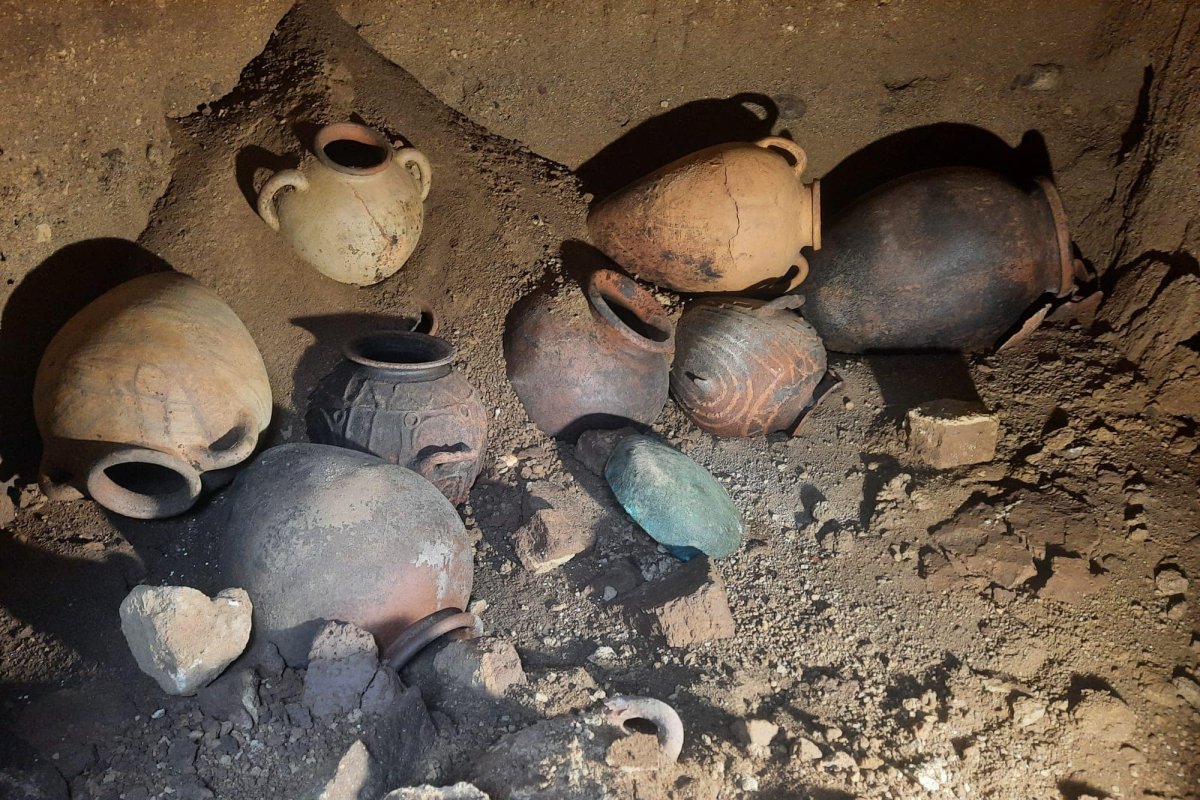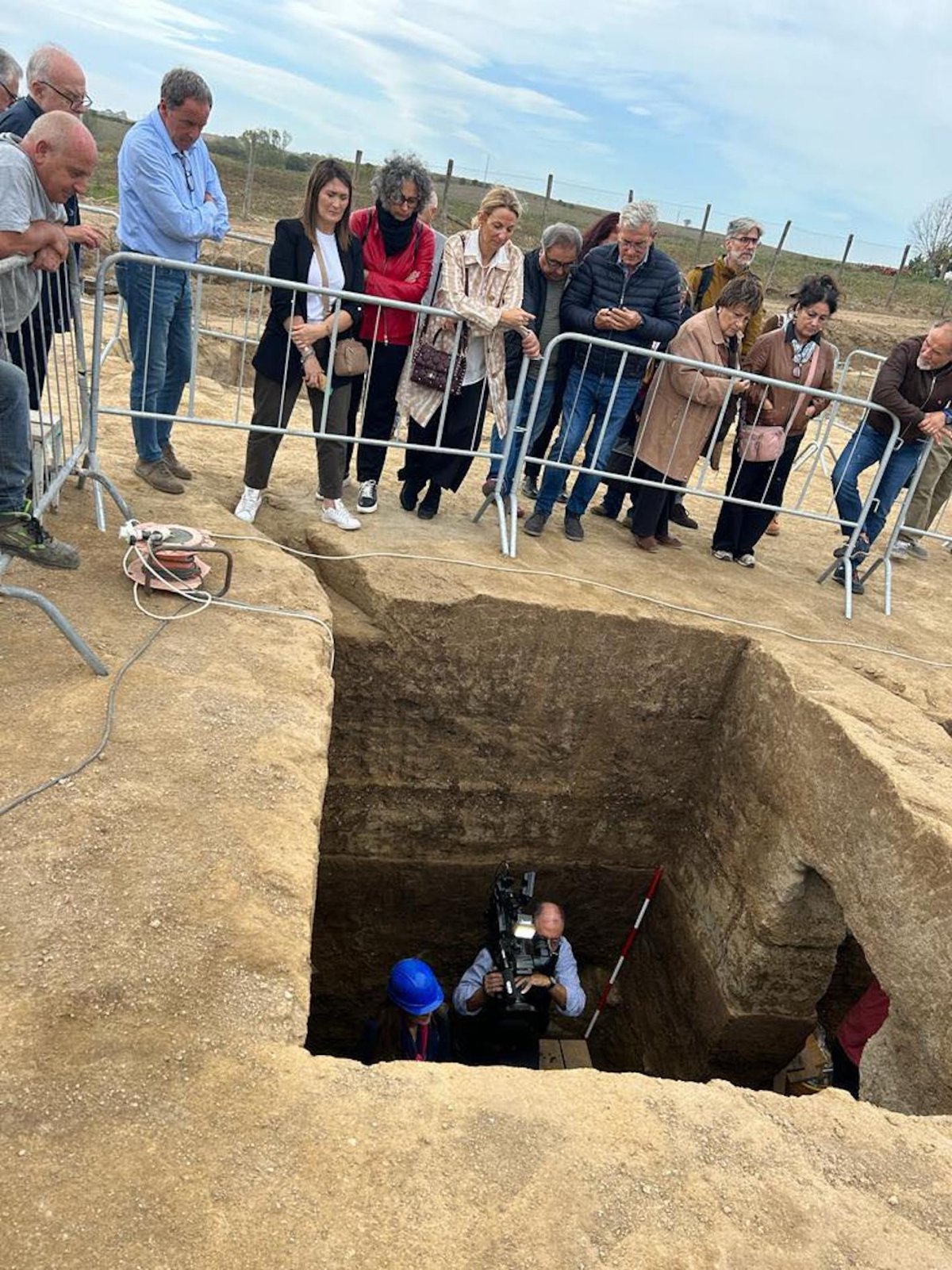Archaeologists have opened an ancient tomb in Italy that had remained untouched for 2,600 years, finding a wealth of rare artifacts.
The tomb lies within the archaeological site of Vulci—located between the municipalities of Montalto di Castro and Canino in Italy's central Lazio region—which preserves the ruins of an Etruscan city.
The Etruscans were an ancient people who lived in parts of what is now Italy more than two thousand years ago. Their civilization reached its height in around the 6th century B.C., before being succeeded by the Romans, who adopted many features of their culture.
Vulci was an important Etruscan settlement that flourished in the 6th to 4th centuries B.C.—largely thanks to trade, the extraction of minerals and the manufacture of bronze items, such as jugs.

In April this year, archaeologists discovered a previously unknown Etruscan tomb at the Osteria necropolis in Vulci. Last Friday, that tomb was opened, the local government of Montalto di Castro announced in a Facebook post.
The interior of the tomb, which is very large and consists of a double chamber dug into the rock, was found to be intact, Finestre sull'Arte reported. The entrance was blocked by slabs of rock, which were removed one by one.
Inside, archaeologists found a rich collection of things, including pottery, ancient wine vessels, ornamental accessories, iron objects, bronze artifacts such as a cauldron, and a tablecloth from a funeral banquet. Many of the items were in almost perfect condition.
Some of the wine vessels, or amphorae, appear to originate from Greece—with two likely coming from the island of Chios, highlighting the importance of the wine trade.
The nature of the objects indicates that they must have belonged to a high-class family, according to the archaeologists.
A spokesperson for the Superintendency of Archaeology, Fine Arts and Landscape for the province of Viterbo and southern Etruria told Newsweek that excavations at the Osteria necropolis have been ongoing for about 12 years. Researchers now intend to thoroughly investigate the finds, the spokesperson said.
The latest discovery has the potential to yield significant information about life in ancient Vulci and the city's elites, in particular, at a time when the settlement was flourishing.

Last month, archaeologists in Egypt announced the discovery of hundreds of ancient wine vessels at a royal tomb in the Umm El Qa'āb necropolis, located in the ancient city of Abydos.
The jars, some of which remained unopened, contained traces of wine from 5,000 years ago, according to the researchers. The team also found a large quantity of well-preserved ancient grape seeds inside the jars.
"The discovery of sealed, intact wine jars at Abydos, along with well-preserved grape pips, has the potential to significantly build our understanding of some of the earliest wine production, use and trade in the ancient Mediterranean and North Africa," Emlyn Dodd, a lecturer at the Institute of Classical Studies—a research institution associated with the University of London in the U.K.—who was not involved in the discovery, told Newsweek.
Update 11/06/23, 12:44 p.m. ET: This article was updated with additional information from the Superintendency of Archaeology, Fine Arts and Landscape for the province of Viterbo and southern Etruria.
Uncommon Knowledge
Newsweek is committed to challenging conventional wisdom and finding connections in the search for common ground.
Newsweek is committed to challenging conventional wisdom and finding connections in the search for common ground.
About the writer
Aristos is a Newsweek science reporter with the London, U.K., bureau. He reports on science and health topics, including; animal, ... Read more





